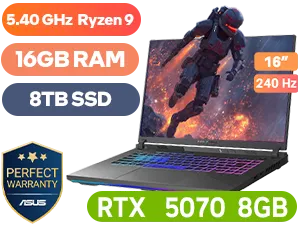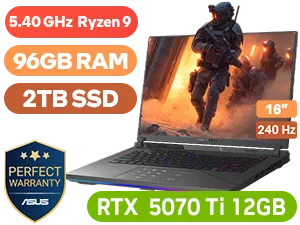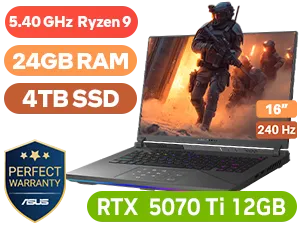Best CPUs for AI Development | Top Picks
Discover the best CPUs for AI development and boost your machine learning workflows 🚀. Find high-performance processors optimized for AI tasks.
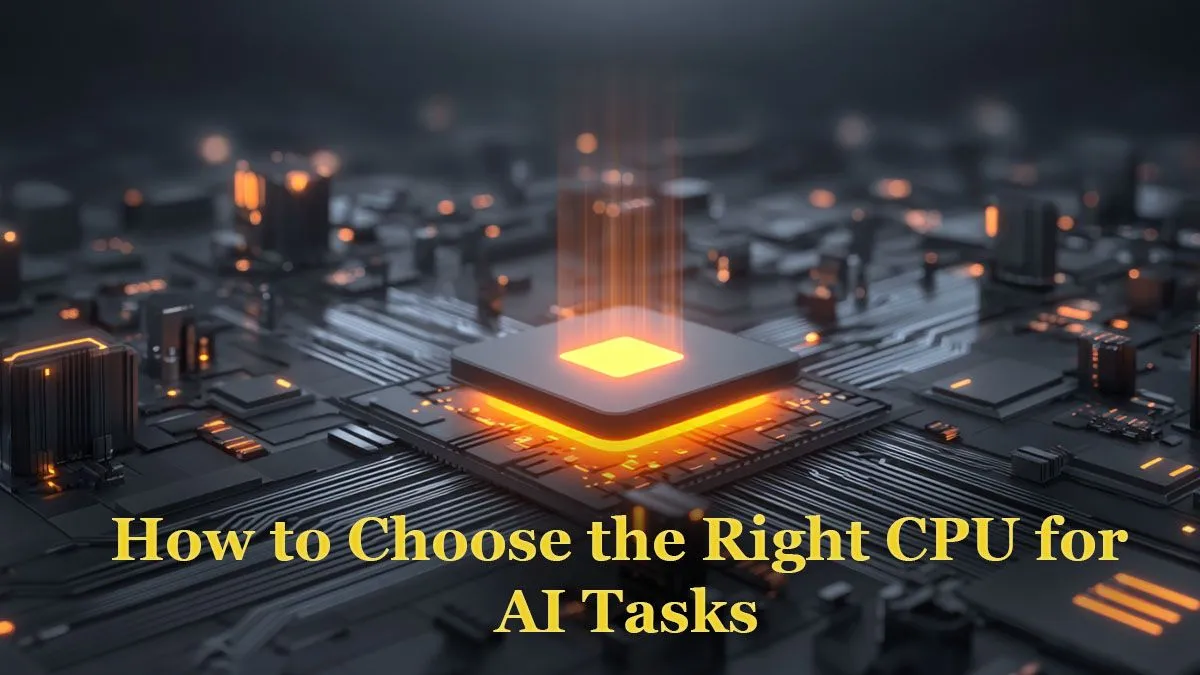
Choosing the right hardware for an AI build in South Africa can be tricky. While the GPU gets all the glory, your Central Processing Unit (CPU) is the unsung hero. It manages your operating system, prepares massive datasets, and keeps your entire workflow from bottling. Skimp on the CPU, and you’ll feel it. This guide cuts through the noise to compare the top contenders, helping you find the best CPU for AI development without the guesswork. Let's dive in. ⚡
AMD vs. Intel: The Core AI Showdown
The central debate often comes down to Team Red versus Team Blue. Both make some of the best CPUs for AI development, but they excel in different areas. Here’s a high-level look at their strengths and weaknesses for typical AI workloads like data pre-processing, code compilation, and running model inferences.
| Feature | AMD Ryzen 9 Series | Intel Core i9 / Ultra 9 Series |
|---|---|---|
| Core & Thread Count | Generally offers more cores/threads at competitive price points. | Strong core counts, but often prioritises clock speed. |
| Platform Cost | The AM5 platform offers great value and a clear upgrade path. | Platforms can sometimes be pricier, but offer wide compatibility. |
| Power & Heat | Highly efficient (Zen architecture), but top models still need good cooling. | Can be very power-hungry under load, demanding premium cooling. |
| Key AI Strengths | Exceptional at heavily multi-threaded tasks like compiling code, data wrangling, and parallel processing. | Excellent single-core speed, strong performance in Intel-optimised AI libraries (like OpenVINO), great all-rounders. |
| Best For... | Data scientists, researchers, and anyone whose workflow involves heavy parallel tasks and massive dataset manipulation. | AI application developers, those using Intel-specific toolkits, and users needing a balance of work and high-end gaming. |
Shop Featured Processors & Kits
Ready to explore the options? Check out the latest prices and models from our top AI-ready categories.
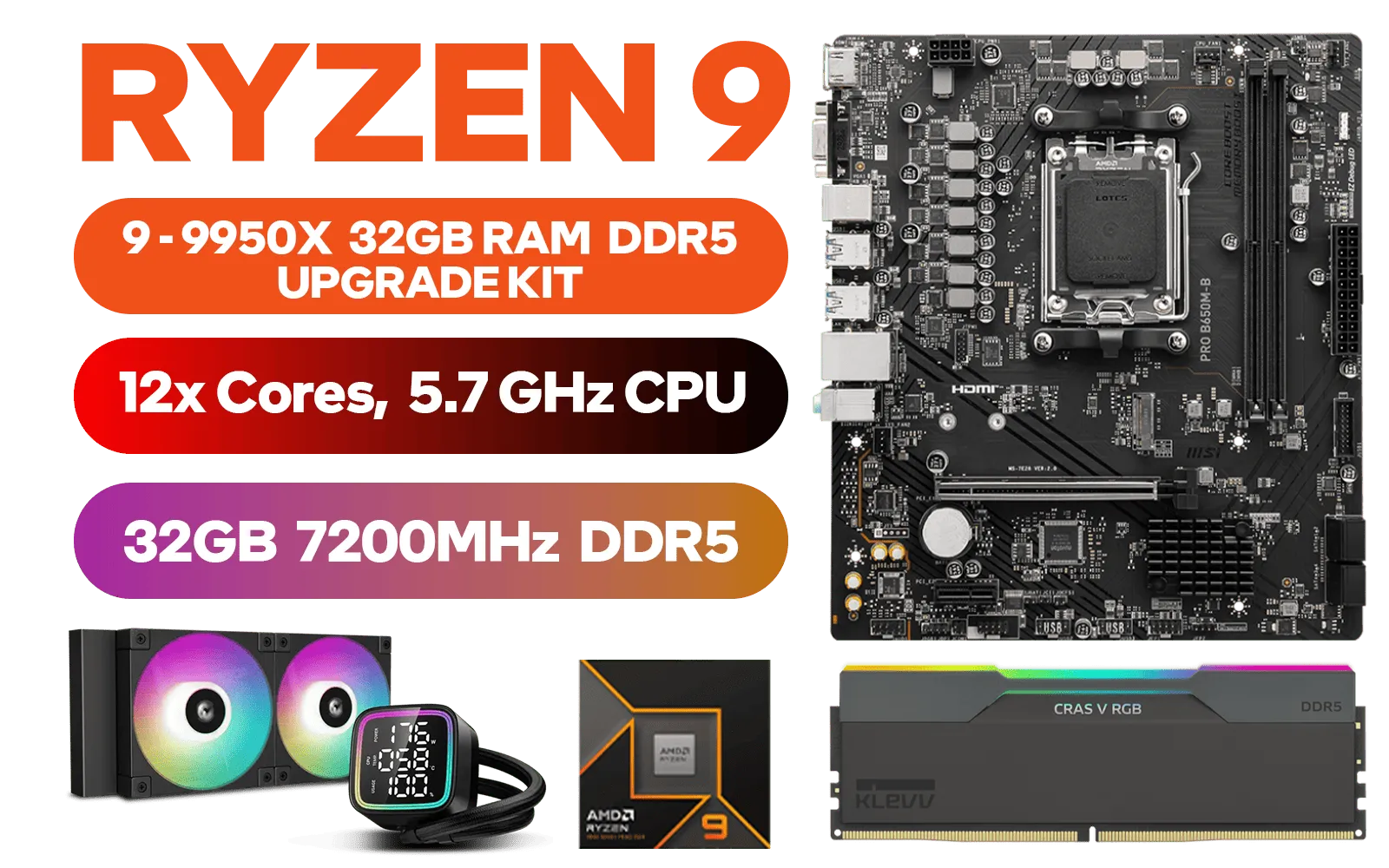
AMD RYZEN 9 9950X PRO B650M-B 32GB DDR5 7200MHz Upgrade Kit - MSI PRO B650M-B AMD Ryzen Motherboard + AMD RYZEN 9 9950X 80MB GameCache Up to 5.7GHz CPU (OEM No Packaging) + KLEVV CRAS V RGB 32GB Kit 7200MHz Gaming Memory + DeepCool LD240 Liquid Cooler - Black
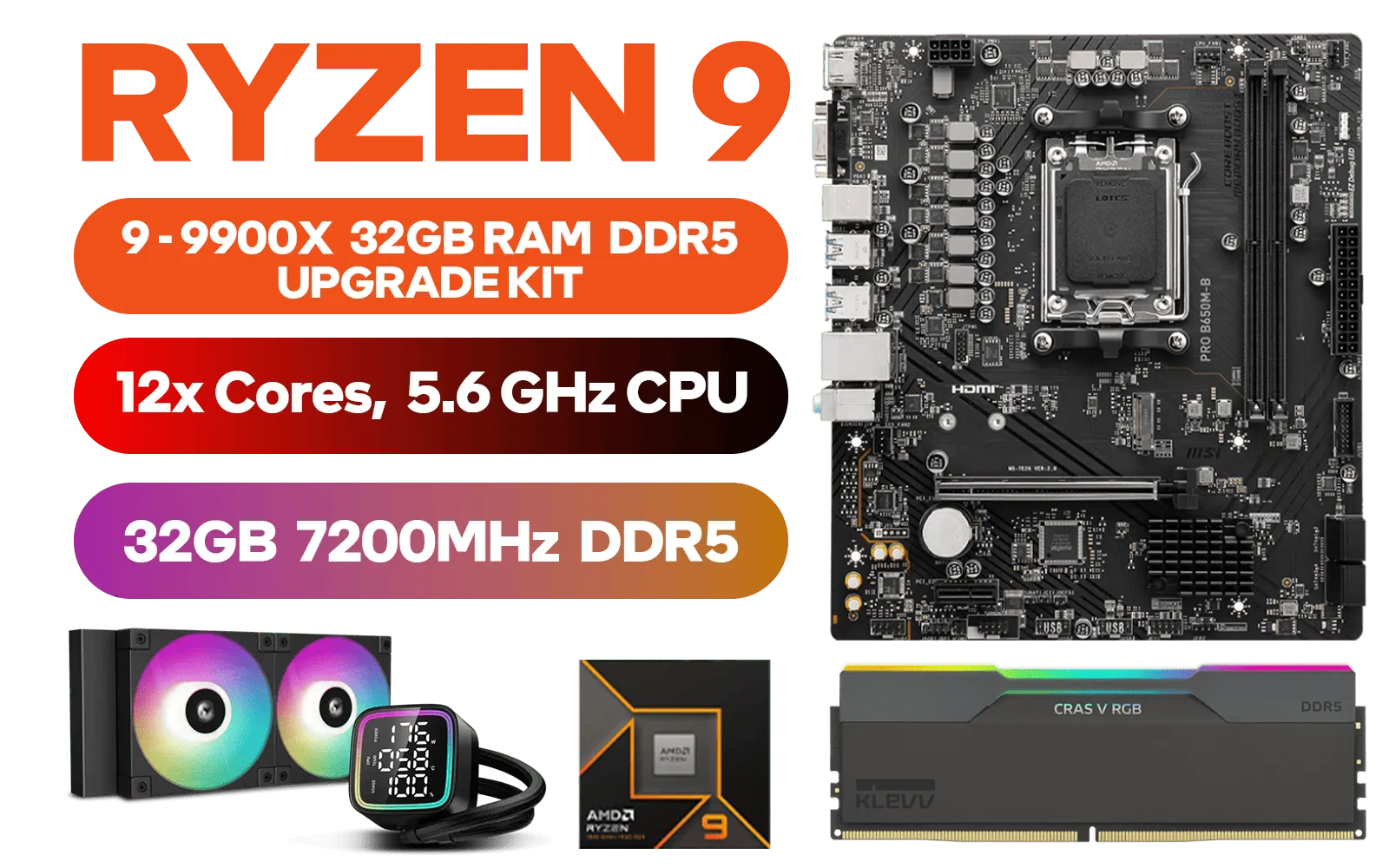
AMD RYZEN 9 9900X PRO B650M-B 32GB DDR5 7200MHz Upgrade Kit - MSI PRO B650M-B AMD Ryzen Motherboard + AMD RYZEN 9 9900X 76MB GameCache Up to 5.6GHz CPU (OEM No Packaging) + KLEVV CRAS V RGB 32GB Kit 7200MHz Gaming Memory + DeepCool LD240 Liquid Cooler - Black

AMD RYZEN 9 9950X PRO B840-P WiFi 16GB DDR5 5600MHz Upgrade Kit - MSI PRO B840-P WiFi AMD Ryzen Motherboard + AMD RYZEN 9 9950X 80MB GameCache Up to 5.7GHz CPU (OEM No Packaging) + Kingspec 16GB Kit (16GB x1) 5600MHz Gaming Memory + DeepCool LD240 Liquid Cooler - Black
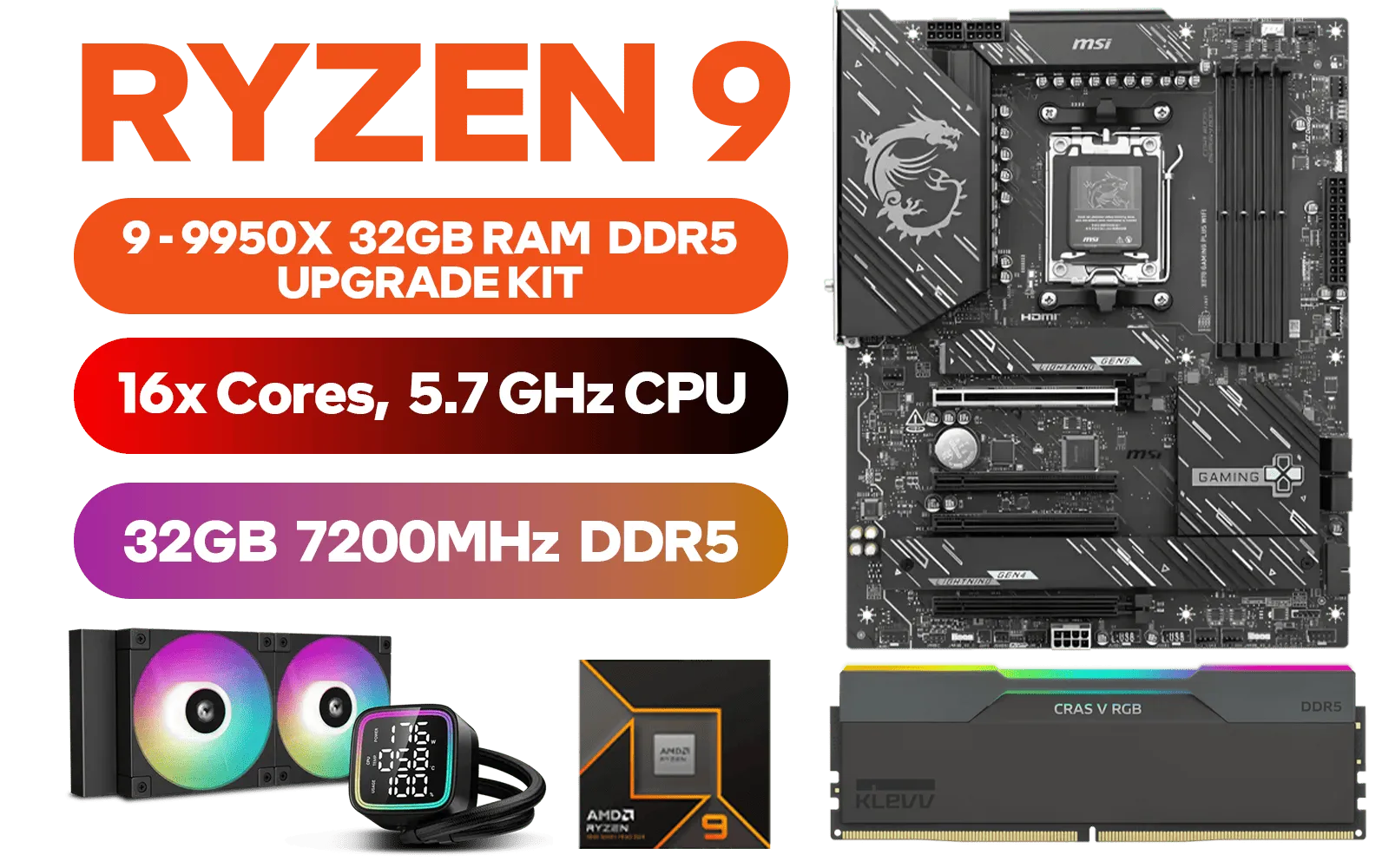
AMD RYZEN 9 9950X MSI X870 Gaming Plus WIFI 32GB DDR5 7200MHz Upgrade Kit - MSI X870 Gaming Plus WIFI AMD Ryzen Motherboard + AMD RYZEN 9 9950X 80MB GameCache Up to 5.7GHz CPU + KLEVV CRAS V RGB 32GB Kit 7200MHz Gaming Memory + DeepCool LD240 Liquid Cooler - Black
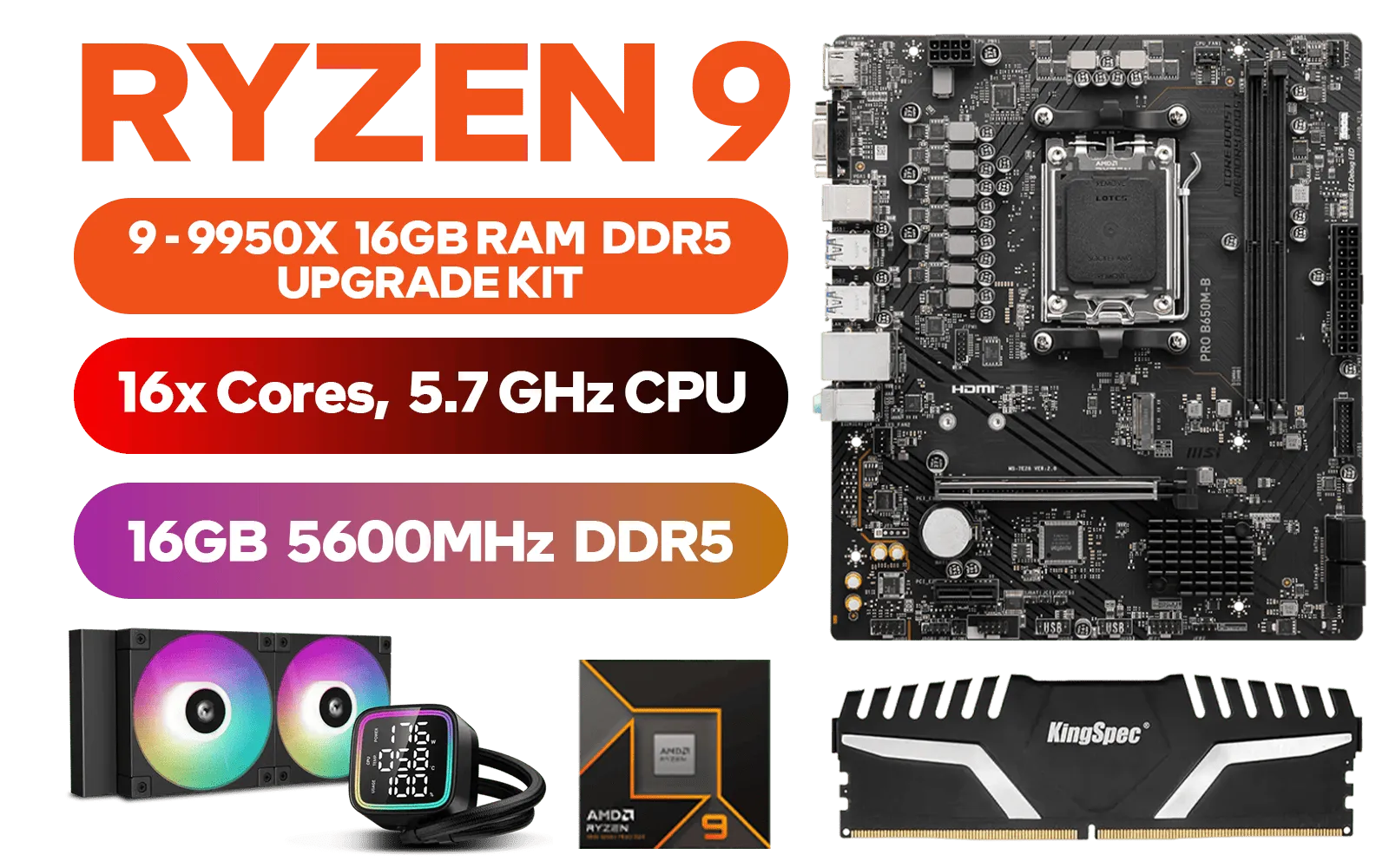
AMD RYZEN 9 9950X PRO B650M-B 16GB DDR5 5600MHz Upgrade Kit - MSI PRO B650M-B AMD Ryzen Motherboard + AMD RYZEN 9 9950X 80MB GameCache Up to 5.7GHz CPU (OEM No Packaging) + Kingspec 16GB Kit (16GB x1) 5600MHz Gaming Memory + DeepCool LD240 Liquid Cooler - Black
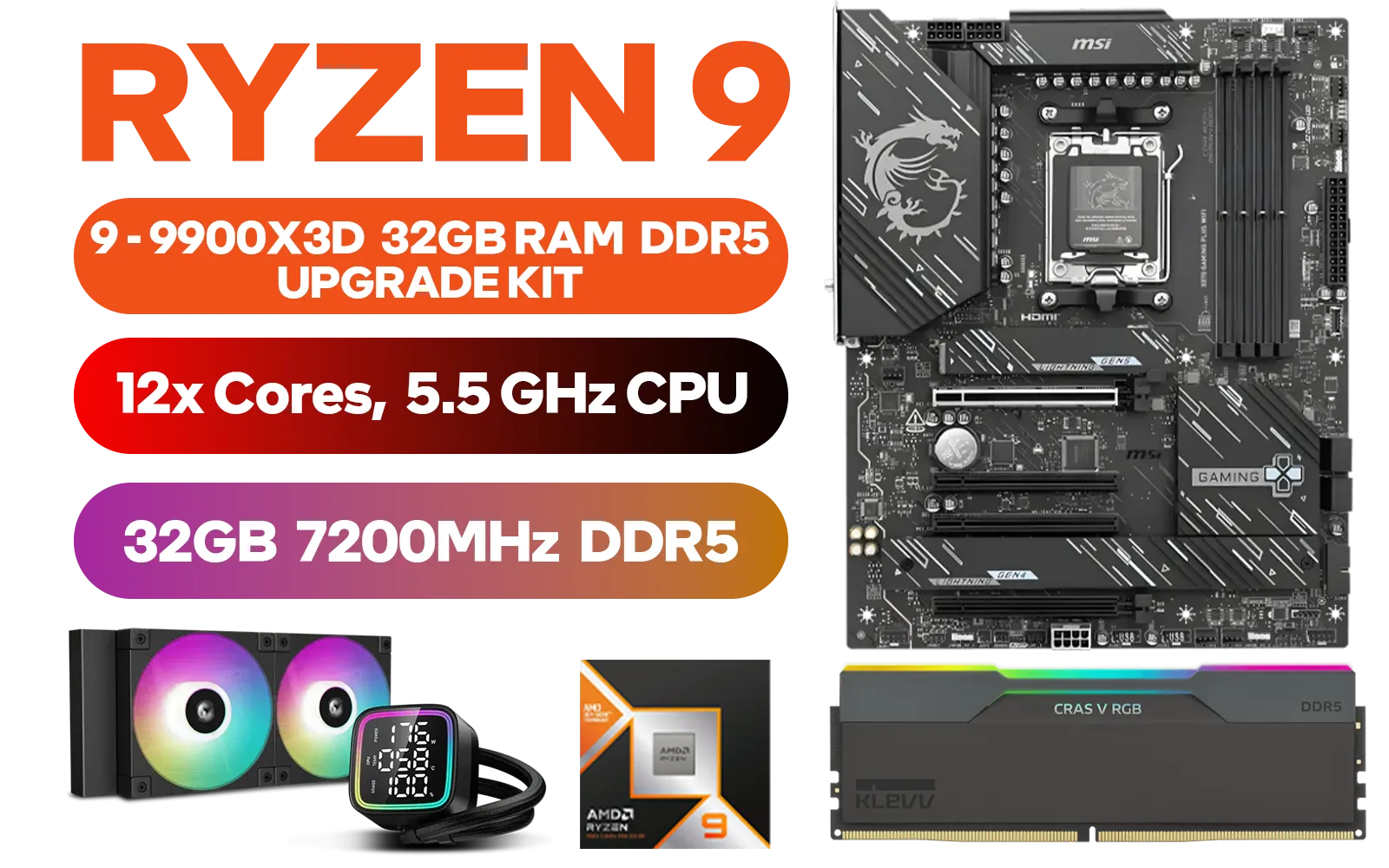
AMD RYZEN 9 9900X3D MSI X870 Gaming Plus WIFI 32GB DDR5 7200MHz Upgrade Kit - MSI X870 Gaming Plus WIFI AMD Ryzen Motherboard + AMD RYZEN 9 9900X3D 140MB Game Cache Up to 5.5GHz CPU + KLEVV CRAS V RGB 32GB Kit 7200MHz Gaming Memory + DeepCool LD240 Liquid Cooler
Pro Tip: Don't Neglect the Motherboard!
A powerful, high-core-count processor for AI development needs a motherboard with strong VRMs (Voltage Regulator Modules). A quality power delivery system ensures your CPU receives stable voltage to maintain high boost clocks during long, demanding workloads. It’s a critical part of a stable AI rig. 🔧
The Verdict: Which CPU is Right for You?
The best choice depends entirely on your specific needs and budget here in South Africa.
- For the Data Scientist: If your daily grind involves wrangling enormous datasets, compiling complex code, or any task that can be spread across many cores, the AMD Ryzen 9 is likely your winner. The higher core count often provides a significant performance uplift and better value for heavily parallelised workloads.
- For the AI Application Developer: If you're building software that uses AI, you need a versatile powerhouse. An Intel Core i9 is a fantastic choice, offering a potent mix of single-core and multi-core speed. If you work with Intel-optimised libraries or want the latest on-chip AI acceleration features, the new Intel Core Ultra 9 processors are designed specifically for you. 🚀
- For the Student or Budget-Conscious Builder: The smartest move is to start with a solid foundation. An AMD or Intel barebone kit gives you the motherboard and CPU essentials at a great price. This lets you allocate more of your budget towards the GPU and RAM, which are critical for running AI models.
Ultimately, any modern high-end processor from either camp will serve you well. By matching the CPU's strengths to your primary tasks, you can build a perfectly optimised AI machine.
Find the Brains of Your AI Build Ready to stop guessing and start building? Shop our complete range of CPU processors now to find the perfect match for your AI ambitions and budget.
Look for high core counts, strong single-threaded performance, and PCIe 4.0 support for seamless GPU integration in AI workloads.
Powerful CPUs accelerate data preprocessing and model optimization, directly impacting overall machine learning training efficiency.
While basic CPUs can run models, dedicated options with AVX-512 instructions and high memory bandwidth significantly boost deep learning performance.
For AI tasks, 8+ cores provide optimal parallel processing capabilities while maintaining strong per-core performance for complex calculations.
Start with a balanced CPU-GPU setup, but prioritize GPUs with higher VRAM for actual model training and complex AI applications.
Yes! Higher clock speeds improve single-threaded performance, which is critical for real-time data processing in machine learning pipelines.
Allocate 60% budget to GPU, 30% to CPU/motherboard, and 10% to storage for balanced AI development rig with room to scale.




